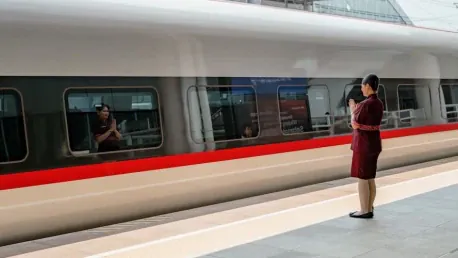The imminent shutdown of Trans Metro Dewata (TMD) public transportation services in Bali, effective from January 1, 2025, has left many residents and stakeholders apprehensive about the future of the island’s public transport system. The TMD Integrated Highway Bus, which has been a crucial pillar in promoting an eco-friendly lifestyle and reducing traffic congestion, announced its closure on Instagram, stirring up a multitude of reactions. Many people expressed disappointment and voiced concerns over how this move will exacerbate traffic issues and create severe inconveniences, especially for the lower middle-class segment of the population who rely heavily on the affordable and efficient service provided by TMD buses.
Impact on Residents and Public Transportation
For residents who have come to depend on the TMD buses, the news of the shutdown has brought uncertainty and dissatisfaction. The news has highlighted the significance of public transport services in their daily lives. For many, TMD buses were not just a mode of transportation but a vital part of their routine that allowed them to commute affordably and efficiently. The termination of TMD has raised questions about how the residents will manage their daily commutes without this essential service. Public discourse has revealed widespread concern that the loss of this public transport option will lead to increased reliance on private vehicles, which in turn may heighten traffic congestion and environmental pollution on the already busy roads of Bali.
The decision to discontinue TMD services stems from the Indonesian Ministry of Transportation’s announcement that no subsidy will be allocated in the 2025 State Budget to keep the service running. The Bali Provincial Transportation Office, under the leadership of Samsi Gunarta, is urgently seeking temporary solutions and negotiating for continued funding. Despite their efforts, residents are anxious about how long they will be without a reliable public transport system and what alternative arrangements will be made to fill the gap left by TMD. The situation has brought to light a significant financial challenge faced by the agencies responsible for providing public transport services in Bali, emphasizing the pressing need for sustainable and well-funded solutions.
Governmental Responses and Financial Challenges
In response to the widespread outcry, the Bali Provincial Transportation Office, led by Samsi Gunarta, has been active in exploring potential temporary solutions to bridge the gap left by the TMD shutdown. Engaging in negotiations for continued financial support has been a top priority for the agency, which has underscored the dire necessity of about IDR 80 billion annually to ensure the continuation of these vital public transport services. These financial hurdles highlight the broader fiscal challenges faced by the government entities responsible for maintaining public transportation infrastructure and services. Without adequate funding, there is a risk of long-term negative impacts on both the economy and the environment.
Government officials are grappling with the complexities of budget constraints while trying to balance the needs of the population with the available resources. Some potential solutions being considered include finding alternative funding sources, possibly through public-private partnerships, or reallocating resources from other areas. Additionally, there may be efforts to promote other forms of sustainable transportation, such as increasing the number of bike-sharing programs or encouraging the use of electric vehicles. However, these measures are not without their challenges and are unlikely to completely replace the need for a reliable and extensive bus network that TMD currently provides. The financial viability and sustainability of any proposed solution will be critical to its success.
Future of Public Transport in Bali
The impending shutdown of Trans Metro Dewata (TMD) public transportation services in Bali, set to take effect on January 1, 2025, has left many residents and stakeholders anxious about the future of the island’s public transport. The TMD Integrated Highway Bus, which has played a vital role in promoting an eco-friendly lifestyle and reducing traffic congestion, announced its closure on Instagram. This announcement has sparked a wave of reactions, with many people expressing disappointment and concern about the potential increase in traffic issues and the severe inconveniences this move will cause. This is particularly troubling for the lower middle-class segment of the population who depend heavily on the affordable and efficient service that TMD buses have provided. Many residents fear that without this crucial service, commuting will become more difficult and costly, impacting their daily lives and contributing to additional environmental and logistical challenges on the island.









